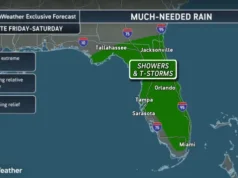
People consider the law to be a large and unchanging object, much like a monument. However, the law is much more comparable to an ecosystem. If you change something in one part of the ecosystem, then the changes ripple outward affecting the ecology of everything around them.
It may take time to see the consequences of changes made to existing laws or passing new ones, but they do eventually turn up and can create quite a mess while the ecosystem adjusts. There have been many huge changes in law at the state and federal level in the past 20 to 30 years, and just like throwing a big rock into a pond the ripples are still being felt. Throwing that rock into a pond does more than creating ripples, it can stir up sediment, disturb wildlife, and also annoy the neighbors.
Cannabis: States vs. Feds
Cannabis (also called marijuana, pot, weed, etc.) was outlawed for medical, recreational, and industrial purposes with the passage in 1970 of the Controlled Substances Act. However, since the passage of California ballot proposition 215 in 1996 which legalized medical cannabis at the state level, other states have followed suit in decriminalizing possession for personal use or allowing medical and recreational use.
Even some of the most conservative states such as Oklahoma, Arkansas, Louisiana, and Missouri have legalized “medical marijuana” for their citizens. States continue to pass these laws even though the Supreme Court has recognized the federal governments right in regulating and criminalizing the use of cannabis in the cases of United States v. Oakland Cannabis Buyers Cooperative and Gonzalez v. Raich.
- Medical Only: (18 states) Arizona, Connecticut, Delaware, Florida, Hawaii, Minnesota, Montana, New Hampshire, New Jersey, New Mexico, New York, North Dakota, Ohio, Pennsylvania, Rhode Island, Utah, West Virginia.
- Medical and Recreational: (10 states) Alaska, California, Colorado, Indiana, Maine, Massachusetts, Michigan, Nevada, Oregon, Washington.
- Cannabidiol (CBD) Legal States: (17 states) Alabama, Georgia, Indiana, Iowa, Kentucky, Mississippi, Missouri, North Carolina, Oklahoma, South Carolina, South Dakota, Tennessee, Texas, Utah, Virginia, Wisconsin, Wyoming.
One thing about all the states legalizing cannabis in its various forms is that all of them ban the import of cannabis from other states where it is legal, and have strict provenance and packaging laws.
In the new boom industry called “cannabusiness” companies are springing up, entering a heavily populated and competitive field, and some simply can’t make it. It’s similar to the dot com boom and subsequent bust of the late 1990s. With that going out of business frequently comes bankruptcy, and therein lies a problem.
Bankruptcies are handled by the federal courts and the Department of Justice. Which holds that the proceeds that originate from the sale of cannabis are from illegal activity.
Conundrums and Cannabis
In order for a business to file for bankruptcy, the debtor must file a plan that is “proposed in good faith and not by any means forbidden by law.” And therein lies the problem as cannabis is still illegal at the federal level. The US trustee can block any marijuana bankruptcy that it pleases, effectively denying cannabis-based or oriented businesses the relief of bankruptcy court. Moreover, there seems to be no protection for even tangential players such as cabinetmakers, landlords, and other businesses tied in with dispensaries, growers, and other direct players.
It did take time, from that 1996 ballot issue until today for many ramifications of legalizing cannabis use at the state level without making changes in many areas of federal law. The prevailing view is that of In re McGinnis, in which a Chapter 13 marijuana bankruptcy was filed and the judge ruled that profits derived from the growth and sale of marijuana were invalid because the business activities were illegal according to federal law, despite being legal within the state where the bankruptcy was filed. This was also the case in a Chapter 11 filing of Garvin v Cook Investments. However, in that case, the judge confirmed the bankruptcy plan and the US trustee appealed, bringing the case before the Ninth Circuit Court of Appeals.
The Ninth Circuit and Marijuana Bankruptcy
 In May 2019, the Ninth Circuit Court of Appeals refused to overturn the ruling of the Washington state bankruptcy court judge. They found that language in the statute that the US trustee used to deny the bankruptcy referred to the proposal of the plan, but not its substance. The court sliced it very thin. A plan must be proposed in good faith and not by any means forbidden by law, and the Ninth Circuit Court of Appeals ruled that the plan met that criteria. The court’s opinion is also that judges should not be forced to scrutinize all bankruptcies for potential violations of law, but at the same time filing for a marijuana bankruptcy does not exempt the filer from federal charges at a later time.
In May 2019, the Ninth Circuit Court of Appeals refused to overturn the ruling of the Washington state bankruptcy court judge. They found that language in the statute that the US trustee used to deny the bankruptcy referred to the proposal of the plan, but not its substance. The court sliced it very thin. A plan must be proposed in good faith and not by any means forbidden by law, and the Ninth Circuit Court of Appeals ruled that the plan met that criteria. The court’s opinion is also that judges should not be forced to scrutinize all bankruptcies for potential violations of law, but at the same time filing for a marijuana bankruptcy does not exempt the filer from federal charges at a later time.
Marijuana, Bankruptcy and Florida Businesses
As states legalize cannabis for medical or recreational use, grant growing licenses, regulate packaging and labeling, and otherwise legitimize and regulate marijuana businesses, other businesses will naturally deal with them. Whether it is landlords, realtors, providers of fixtures and fittings, or direct providers of cannabis to these businesses, a marijuana bankruptcy has the potential – like all business bankruptcies – to affect more than just the business that is filing for bankruptcy protection.
Are You Thinking of Filing?
Bankruptcy is considered a specialty practice, and it is one that we have handled for 10 years. Van Horn Law Group offers a free consultation and is open seven days a week in Fort Lauderdale and West Palm Beach. If you are a cannabis-based business or tangentially involved with one, and are drowning in debt, we want to help. Our experienced staff and attorneys can help you navigate bankruptcy courts and help to bring your filing to the successful resolution and discharge. If you are looking at a marijuana bankruptcy, call us. Chad Van Horn is an experienced bankruptcy attorney with the know-how that it takes to navigate this evolving area of federal law.
Disclaimer
Artificial Intelligence Disclosure & Legal Disclaimer
AI Content Policy.
To provide our readers with timely and comprehensive coverage, South Florida Reporter uses artificial intelligence (AI) to assist in producing certain articles and visual content.
Articles: AI may be used to assist in research, structural drafting, or data analysis. All AI-assisted text is reviewed and edited by our team to ensure accuracy and adherence to our editorial standards.
Images: Any imagery generated or significantly altered by AI is clearly marked with a disclaimer or watermark to distinguish it from traditional photography or editorial illustrations.
General Disclaimer
The information contained in South Florida Reporter is for general information purposes only.
South Florida Reporter assumes no responsibility for errors or omissions in the contents of the Service. In no event shall South Florida Reporter be liable for any special, direct, indirect, consequential, or incidental damages or any damages whatsoever, whether in an action of contract, negligence or other tort, arising out of or in connection with the use of the Service or the contents of the Service.
The Company reserves the right to make additions, deletions, or modifications to the contents of the Service at any time without prior notice. The Company does not warrant that the Service is free of viruses or other harmful components.












